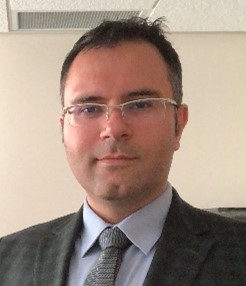Microwave technology for contactless and long-range sensing: Fundamentals and Applications (Invited Talk, IEEE Sensors Council Chapter)
Sponsored by IEEE Sensors Council Chapter, Vancouver Section
Technological advancements and new material processing techniques have allowed the development of ever more sophisticated sensors, stretching their applications to various sectors. Sensors are devices that convert physical parameters such as temperature, speed, and force into meaningful and electrically measurable signals for determining appropriate actions during decision making processes. The global sensor market was approximately $170 billion in 2019 and is projected to grow at a compound annual growth rate (CAGR) of 10% within the period of 2020 to 2026. The rapid growth rate in the sensor market presents a clear demand for accurate, wireless, and robust sensing devices. While the world has moved swiftly toward widespread implementation of smart sensors, the continuous drive to improve sensitivity, resolution, durability, and range of these devices is ever-present.
Microwave sensors, among other sensor alternatives, have demonstrated great potential in various sensing applications due to their simple fabrication process and compatibility with CMOS technology. They promise to offer integrated portable sensing platforms with wired and wireless communication interfaces for real-time monitoring and analysis purposes. In order to advance the efficiency and precision of microwave sensors, various approaches have been taken including employing a liquid metal technique to enhance the tunability for microwave sensors, integrating chemical receptors into microwave sensors for selectivity enhancement purposes, and introducing electromagnetic loss compensation methods to enhance the resolution of these sensors. These efforts are followed by integrating the sensing platform with antenna structures for wireless sensing applications.
Date and Time
Location
Hosts
Registration
Speakers
 Dr Mohammad H. Zarifi of University of British Columbia
Dr Mohammad H. Zarifi of University of British Columbia
Biography:
Mohammad Hossein Zarifi, received the B.Sc., MSc. and Ph.D. degree in electrical and computer engineering from the University of Tabriz, Iran, in 2004, 2006 and 2009 respectively. He is currently an assistant professor with the school of engineering at the University of British Columbia, and the director of Okanagan Microelectronics and Gigahertz (OMEGA) Laboratory, Canada. Prior joining UBC, Dr. Zarifi was a postdoctoral fellow at the University of Alberta from 2013-2017. He has authored or coauthored more than 90 papers in peer-reviewed journals and conference proceedings as well as 10 issued or pending patents. Dr. Zarifi received CMC-NRC first place award, on industrial collaboration, for the innovative microwave sensors, in Canada, at 2015. Dr Zarifi’s research focus includes design of high-speed and low-power analog circuits, analog-to-digital converters for biomedical and communication applications, and microwave structures for sensing applications. Dr. Zarifi is a senior member of the IEEE Solid-State Circuits Society, and the IEEE Circuits and Systems Society and served as a reviewer for different journal and conferences. His current research is investigating the new emerging technologies for the state-of-the-art sensors, with focus on microwave resonators.
Email:
Media
| Microwave_Sensing_MHZarifi_SEN39 | 62.20 KiB |


 Add Event to Calendar
Add Event to Calendar